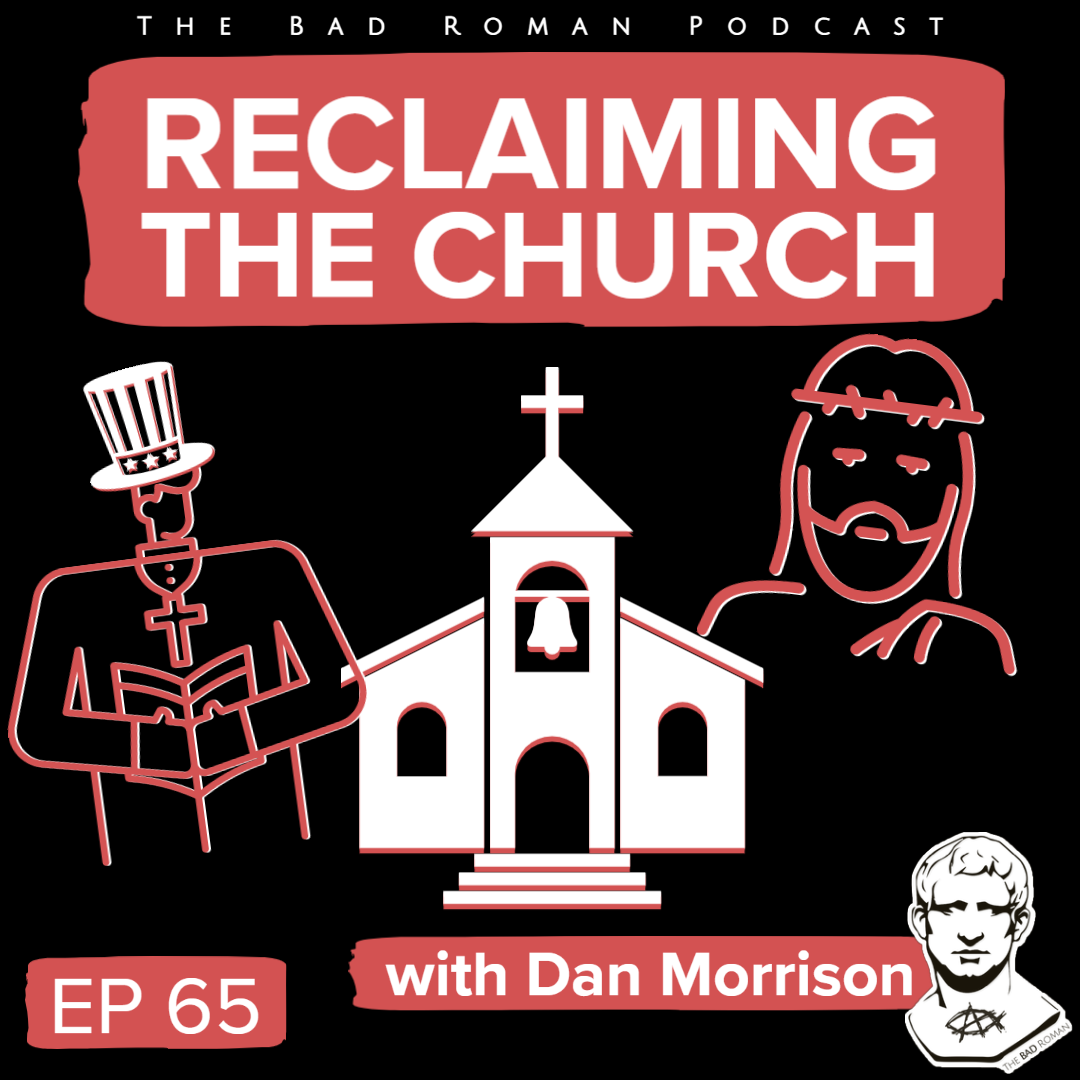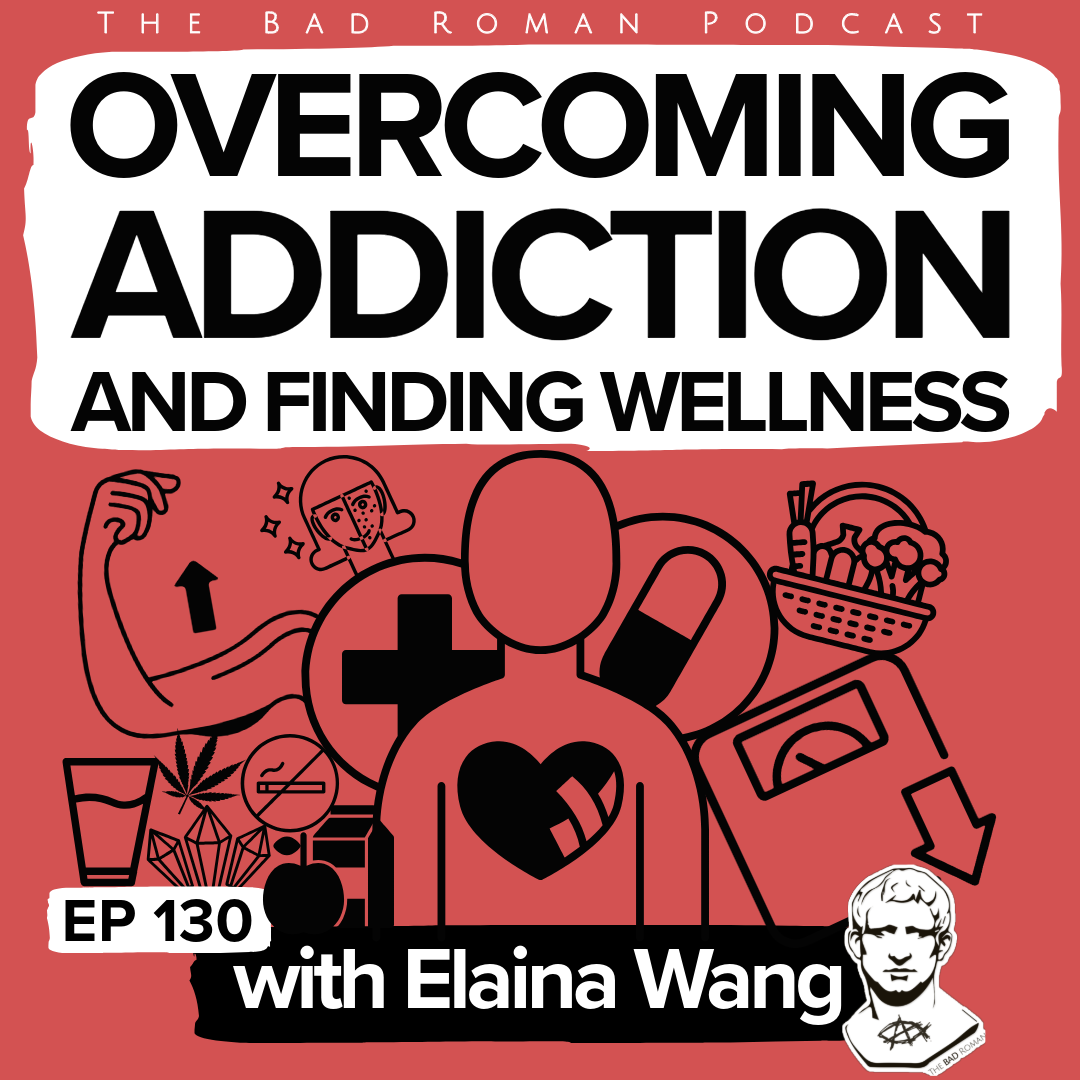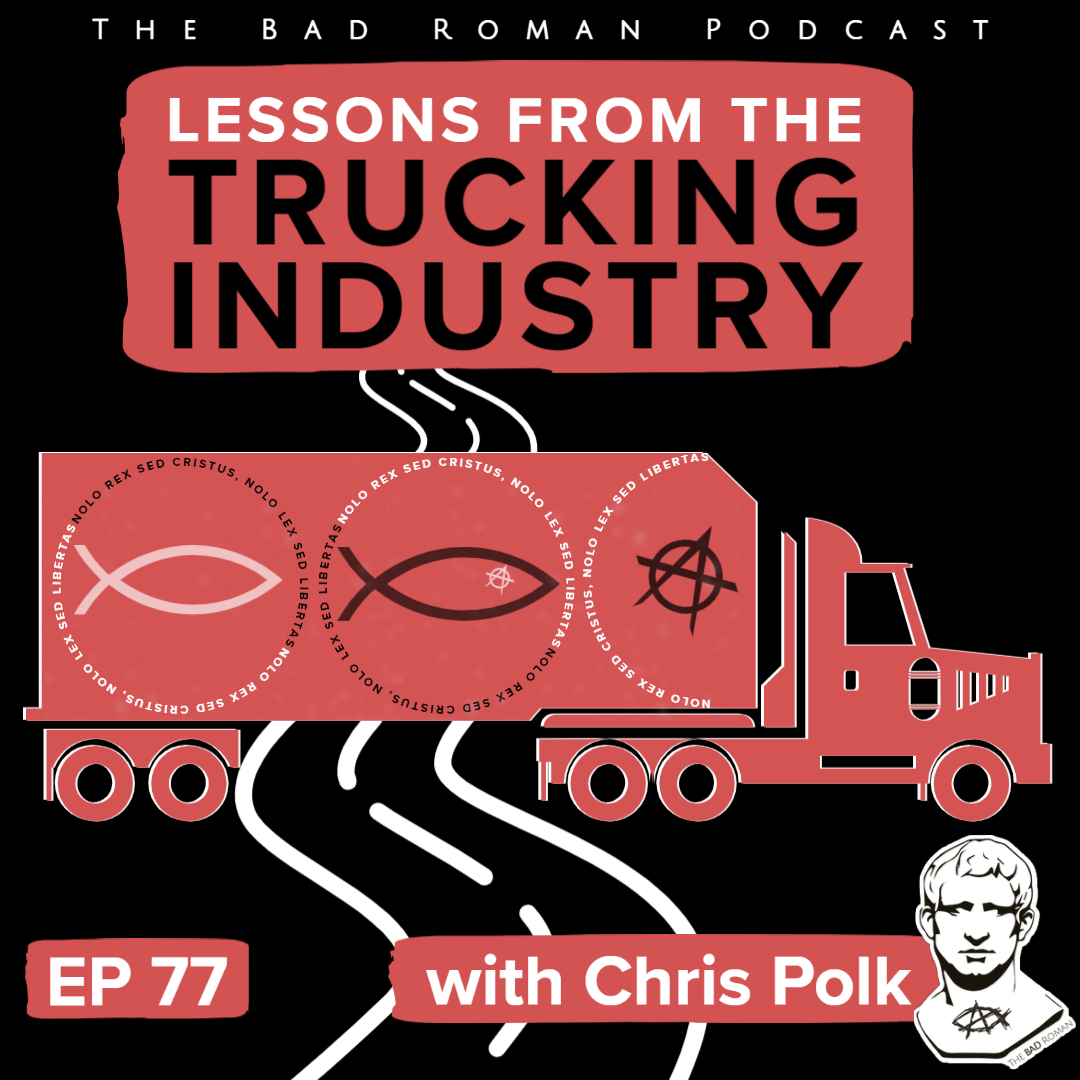Have you ever felt like your political beliefs were holding you back from truly following Christ? Many Christians struggle to reconcile their faith with their allegiance to earthly governments. In this eye-opening episode of the Bad Roman Podcast, host Craig Harguess sits down with Patrick Green to explore his transformative journey from state worship to embracing the radical message of "No King But Christ."
A Tale of Two Kingdoms
Patrick's story is a powerful reminder that we all start somewhere on our spiritual journeys. Like many Americans, he once placed his trust in political solutions and government institutions:
"At my worst, I couldn't wait to get home from work to turn on Sean Hannity and have him tell me how we were going to save America from the evil Democrats. That's just how lost I was at that point in my life."
Does this resonate with you? Many of us have been caught up in the fervor of partisan politics, believing that if we just elect the right people or pass the right laws, everything will be better. But as Patrick discovered, this mindset often leads us away from Christ rather than towards Him.
The Turning Point
For Patrick, several key realizations shattered his faith in earthly governments:
Reading libertarian authors like Lysander Spooner and Murray Rothbard exposed the true nature of the state.
Studying the public school system revealed the inherent conflict of interest in state-run education.
Examining the Pledge of Allegiance through a Biblical lens highlighted its idolatrous nature.
But the most profound shift came through reading Scripture with fresh eyes. Patrick shares:
"When I read 1st Samuel 8 for the first time, I was instantly cured of any and all remnants of worshiping the government in politics. Whatever was left of that idol was completely smashed."
This passage, where the Israelites demand a king despite God's warnings, speaks powerfully to our modern idolatry of the state. It challenges us to examine where we've placed our ultimate allegiance.
Embracing a New Identity
As Patrick's eyes were opened to the truth of "No King But Christ," he experienced a radical transformation:
He no longer sees political opponents as enemies, but as fellow image-bearers of God.
He's replacing symbols of state worship (like patriotic tattoos) with reminders of his allegiance to Christ.
His hope for change is now rooted in the Gospel, not political action.
This shift didn't happen overnight. It took years of patient conversations, personal tragedy, and deep engagement with Scripture. But the result is a faith that's more vibrant, more Christ-centered, and more aligned with the Kingdom of God.
Challenges and Practical Advice
If you're feeling convicted about your own relationship to earthly governments, Patrick's story offers some valuable insights:
Be patient with yourself and others. Deconstructing deeply held beliefs takes time.
Dive deep into Scripture, especially passages that challenge our assumptions about power and authority.
Seek out mentors and resources that can help you navigate this journey.
Remember that our ultimate citizenship is in heaven, not any earthly nation.
What We Learned About Following Christ in a Political World
Patrick's testimony is a powerful reminder that Jesus calls us to a radically different kind of kingdom. Here are the key takeaways:
Our allegiance to Christ should supersede any loyalty to earthly governments or political ideologies.
The Bible offers a profound critique of human power structures that's as relevant today as it was thousands of years ago.
True freedom and transformation come from submitting to Christ as our only King, not from political solutions.
Are you ready to examine your own beliefs about faith and politics? I encourage you to listen to the full episode for even more insights. And if you have your own story of moving from state worship to "No King But Christ," we'd love to hear it. Share your thoughts in the comments or reach out to us directly.
Remember, our call is to be in the world but not of it. Let's challenge ourselves to live as citizens of God's kingdom first and foremost, trusting in His sovereignty above all earthly powers.
🤝Connect with Patrick:
Email: 100foldtestimonies@gmail.com
Episode Timestamps:
(0:22) Guest Introduction: Patrick Green
Focus on Patrick's journey from statism to "no king but Christ" understanding
(0:58) Patrick's Background and Testimony
Grew up in Catholic Church, attended Catholic schools
Lukewarm faith and lack of understanding of the gospel message
Three phases of salvation: breaking down barriers, personal tragedy, receiving the Word
(7:26) Political Idolatry and Awakening
Patrick's past obsession with politics and government
Reading libertarian books by Lysander Spooner and Murray Rothbard
Realizing the true nature of government and the state
(8:28) Overcoming Evolution as a Barrier to Faith
Impact of Lee Strobel's "The Case for a Creator"
Discovering scientific support for Christianity
(10:31) Personal Tragedy and Faith Journey
Experience of multiple miscarriages
Struggle with anger towards God and feelings of despair
(18:55) Turning to Scripture
Reading the entire Bible for the first time in 2021
Impact of 1 Samuel 8 on understanding government and allegiance
(26:37) Lessons from Biblical Parables
Parable of the laborers in the vineyard
Softening judgmental attitudes towards others
(38:55) Transformation and New Perspective
Rejecting political "teams" and embracing fellow humanity
Understanding deception and seeking truth in Jesus
(41:16) Secular Awakening
Questioning public school system and government education
Rethinking the Pledge of Allegiance and national identity
(52:48) Comfort and Government Dependence
Discussion on people's reluctance to let go of government "care"
Critique of 24-hour news cycles and political polarization
(56:13) Both Sides of Politics
Realizing similarities between political parties
Marketing different brands of politics to divided populace
(59:04) Conclusion and Podcast Information
Introduction to Patrick's new podcast: 100 Fold Testimonies
Call for listeners to share their Christian testimonies



























